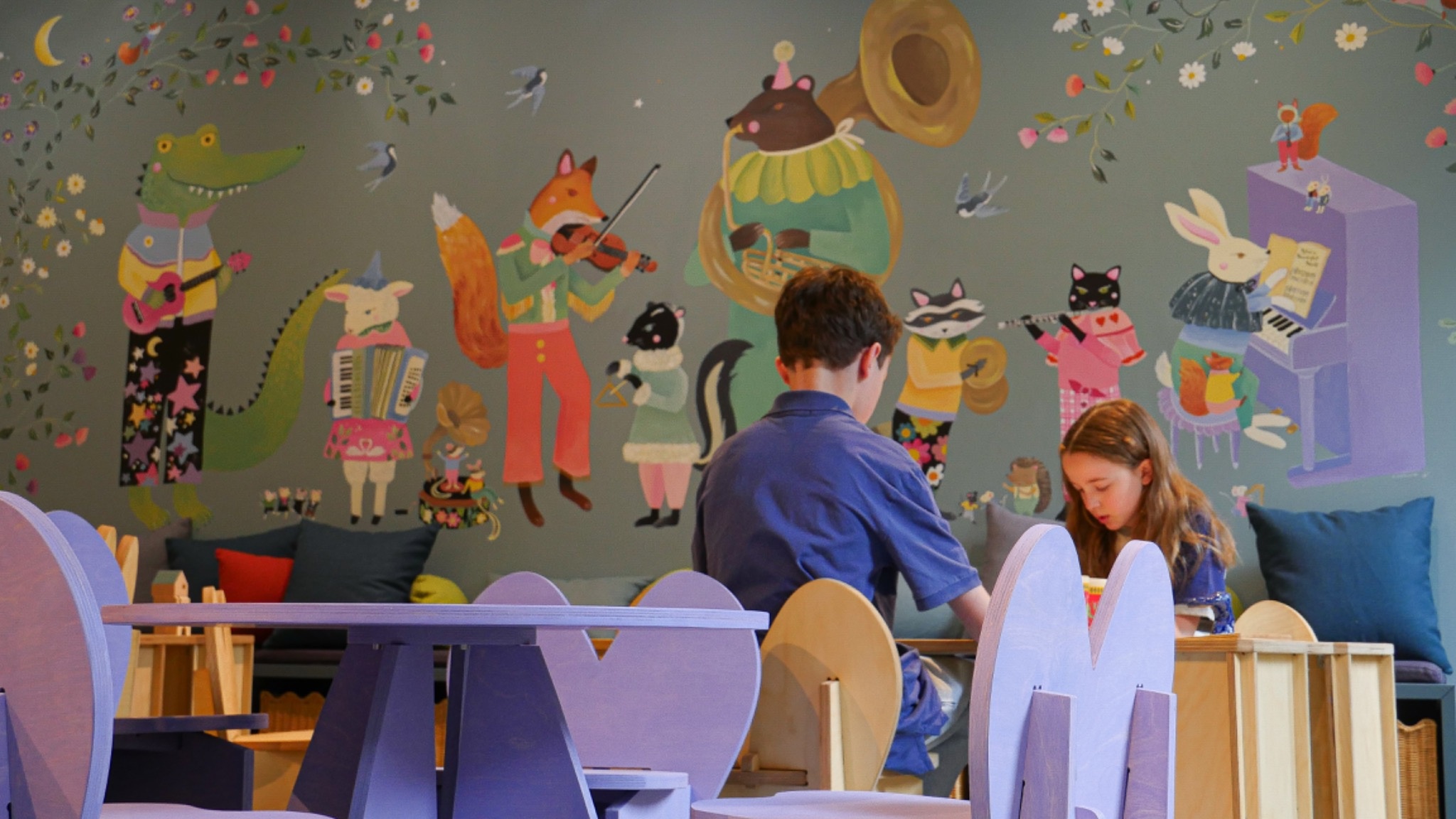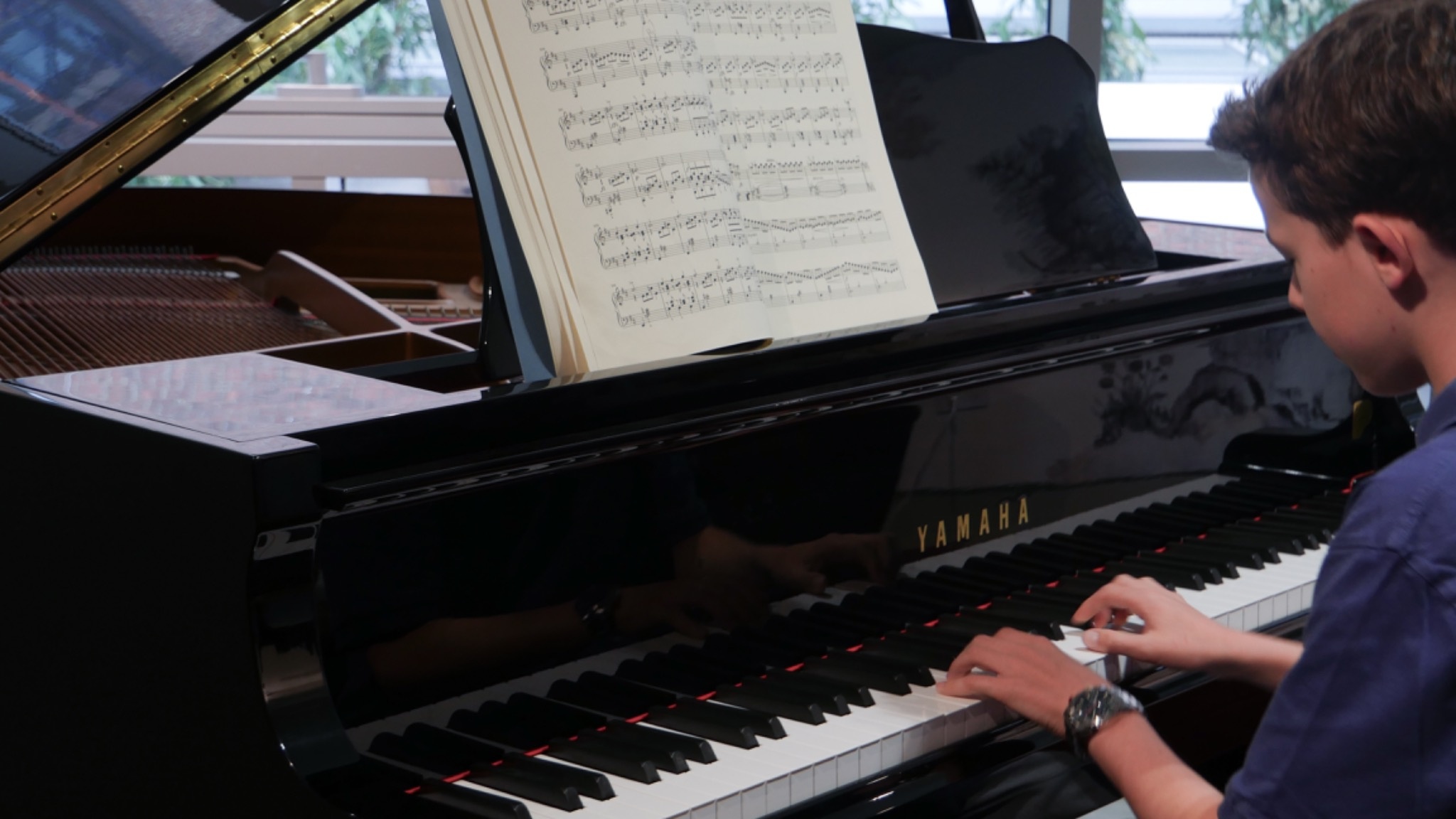Private Lessons vs. Group Classes: What’s Best for You?

When deciding to learn the piano, either for yourself or your child, one of the first questions that comes up is: should you choose private lessons or group classes?
In reality, it's not just a matter of preference or budget. The right format depends largely on age, maturity, and where the student is in their musical journey. There isn't one answer that fits everyone, but rather the right approach for each stage of life.
From 4 to 6: Why Group Classes Make the Most Sense
At this age, many parents imagine that a “real” piano lesson should involve one-on-one time with a teacher. It’s understandable, but it’s often a well-meaning mistake.
Children between 4 and 6 years old don’t yet have the maturity to focus alone in front of an instrument for 30 minutes. Their world is still deeply physical, emotional, and playful. Putting them in private lessons too early could make them feel tense or evaluated, or worse, turning music into an obligation rather than something joyful.
In a group setting, everything changes:
- They move, sing, observe, imitate.
- They’re carried by the group’s energy, without feeling judged.
- They develop listening skills, rhythm, coordination, without even realizing it.
- They associate music with fun, connection, and discovery.
A five-year-old doesn’t need to be told to “play correctly.” What they need is a reason to come back, and nothing makes them want to return more than a warm, welcoming space shared with others.
That’s why our Soon to Sound program is fully group-based, with one class per week designed as a true musical and sensory experience, not just a traditional lesson.
Ages 6 to 15: Why a Combination of Private and Group Lessons Works Best
Between ages 6 and 15, children enter a more structured learning phase. Their focus sharpens, their reasoning skills grow, and they can start to grasp musical concepts with more depth. This is the ideal time to dive into piano technique and interpretation.
But learning music at this age isn’t just about scales and posture. Music is, first and foremost, a language, a living art that’s meant to be shared.
Group piano experiences help children:
- Build confidence
- Learn to listen deeply
- Stay curious
- Enjoy expressing themselves in new ways
A group piano class isn’t just about being several in a room. It’s about learning with and through others. It teaches that music is a dialogue, not a monologue. And it often unlocks dimensions of learning that individual practice alone can’t reach.
That said, personal technique still matters. Every child progresses differently, encounters their own challenges, and benefits from individualized guidance.
That’s why the most balanced approach combines private piano lessons (for personal focus) with group classes (for collective growth). This double format allows young musicians to grow in their playing while staying connected to the social and expressive power of music.

This is exactly what we offer in our Made to Play program, designed to help each student grow technically while also learning to create, share, and build through music.
Adults: Why Private Piano Lessons Are Often the Right Choice
For adults, the reasons for learning the piano vary. Some played as children and want to reconnect. Others are pursuing a lifelong dream they’ve postponed. Some are simply looking for a calm moment in the week or a new creative outlet.
Whatever the motivation, the need is often the same:
- Flexibility
- Personalization
- Respect for individual rhythm and goals
That’s why our Never Too Late program is built entirely around private lessons. Each adult piano student moves forward at their own pace, according to their interests and objectives. It might be a classical piece, a film score, sight-reading, relaxation exercises, everything is tailored.
What matters most is that adults feel supported, encouraged, and free. Private piano lessons provide that space, without pressure, without judgment.
In Summary: Match the Format to the Age, Not the Other Way Around
There’s a reason we’ve chosen these specific formats at La Maison School of Music. They’re not designed to check boxes, they’re the result of thoughtful reflection: how can we offer each student, at every age, the right setting to learn, at the right time, with the right balance?
That’s what gives our piano programs in New York their strength today: clear structure, coherent pedagogy, and deep respect for each learner’s rhythm.
Contact Us
Address: 170 East 80th Street, New York, NY 10075
Website: www.lamaisonschoolofmusic.com
Email: info@lamaisonschoolofmusic.com
Instagram: @lamaisonschoolofmusic
